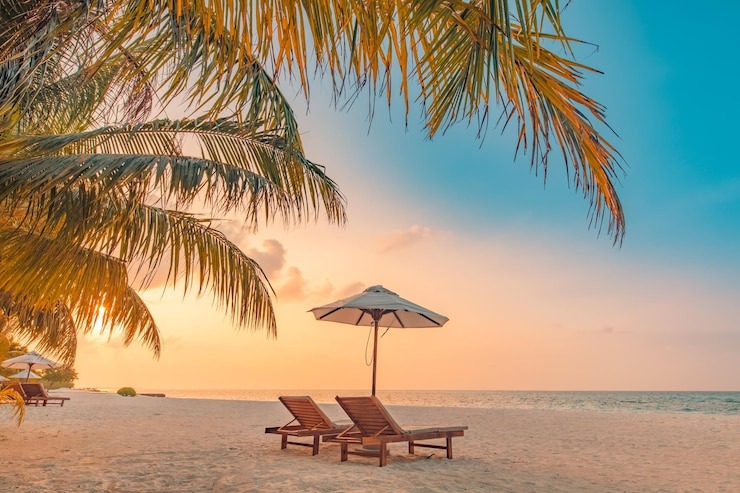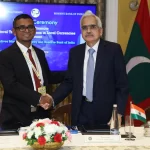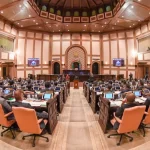MALE’, Maldives — The sun-drenched islands of the Maldives, where honeymooners laze in overwater villas and divers plumb azure depths, seem a world away from the smoke and rubble of Gaza. But here, in this island paradise, a raging debate over a proposed ban on Israeli tourists has ripped open old wounds and exposed new fears, pitting neighbor against neighbor in a fight that’s as much about survival as it is about solidarity.
Today’s story started with a bill, a few lines of legalese that could upend lives. MP Mikail Naseem stood before his fellow legislators and called for amending the Immigration Act. His target: Article 8, the gatekeeper of this island nation. Expand it, he urged, to bar Israeli passport holders, even those with dual nationality. His words, stark against the chamber’s opulence: “It’s a necessary response to Israel’s genocide against Palestinians.”
Naseem isn’t the first to tread this path. The previous parliament, where he was a member, passed a similar resolution, in a symbolic gesture, but it gathered dust, ignored by a government with other priorities. Now, with bodies piling up in Gaza, the cabinet of President Muizzu has been stirred. They want a ban, they say, but only after parliament debates. Described as a half-measure that’s already backfired spectacularly.
“MALDIVES BANS ISRAELI PASSPORTS,” scream global headlines, jumping the gun. The truth? A committee. A debate. A nation on tenterhooks. And yet, the headline might still come to pass.
In the WhatsApp chatter of tourism bigwigs, phones buzz with anxiety. “We don’t even have food security,” types Zara, her message blunt as a gavel. “Our housing’s a mess. And we’re about to hit recession. We need to drop this ‘untouchable’ act. We’re vulnerable as hell.”
She’s not wrong. Tourism is the Maldives’ lifeblood, over a quarter of its GDP wrapped up in infinity pools and candlelit dinners. And it’s been rough few years.
First, COVID-19 gutted arrivals. They bounced back, only to face a new blow: the “India Out” campaign, a toxic blend of politics and xenophobia that targeted their second-biggest market, India.
Then came the president’s off-the-cuff bullying statement, this too against the neighbor, followed by the three junior ministers’ unsavory jabs at India’s PM, and voila: an Indian boycott movement.
“It’s like we’ve politicized tourism,” sighs a resort owner, shaking his head. “The golden goose is getting cooked.”
Enter Mohamed Firaq, CEO of Inner Maldives travel agency, one of the few willing to stick his neck out. “We’re a tiny country, 100% dependent on tourism,” he writes on X. “We import everything except fish. And even that, we export to just a few places. We welcome Europeans, but can we really afford to turn anyone away?”
His stance has cost him. Online, he’s vilified as a sellout. But sit with him, and you see a man torn. He has the data, and he is aware of the cancellations, the frustrations, and the lack of greenbacks.
“I stand with Palestine,” he says softly. “But we’re too small to move the needle. There are a million tragedies every day. We can’t fix them all. We need to fix us first.”
Not everyone’s buying it. In that same WhatsApp group, Zuhur types furiously: “This isn’t about economics! Do we just ignore genocide for a few extra dollars? What’s our soul worth?”
It’s this clash, between wallet and conscience, that’s tearing the Maldives apart. In parliament, tensions boil over. Qasim Ibrahim, a tourism mogul with ventures spanning from sandy atolls to salty lagoons, thunders: “Judaism is Abrahamic! This debate is not about morals. It’s to stir up hate, to topple the government!”
The tourism sector, a cornerstone of the Maldivian economy, is understandably concerned about the potential repercussions of the ban. This concern is evident from the half-hearted discussion the government initiated on the issue. President Muizzu convened the cabinet to discuss the matter, yet preceding this discussion, there was a notable absence of a cabinet paper or a white paper addressing the issue. Moreover, statements made in the media by influential figures like Tycoon Qasim Ibrahim indicate the government’s bypassing of major stakeholders, such as Sun Siyam, who is part of the coalition. Conversely, the head of the MNP, (Col RT) Nazim, was not consulted either.
Qasim’s words lay bare another fear: that even here, morality’s a political weapon. In a country where faith, politics, and tourism are tangled like Indian electricity cables, a foreign policy stand can shake domestic foundations.
And there’s the rub: Is it fair to punish a people for their government’s sins? Ahmed Shareef, another tourism player, ponders this aloud. “What about the Israeli who marches against this war? Do we punish her too?”
Former MP Hamza, his voice a rare note of nuance, offers: “Ban the criminals, the ones dropping bombs. Not every Israeli. Many oppose this war.”
But nuance is in short supply. The government’s approach? Form a committee, debate, have tea and short eats, and then debate again. Critics liken it to an old faulty compass with an uncertain needle.
As the debate rages, the Maldives finds itself where many small, tourism-dependent nations do: between the rock of moral duty and the hard place of economic ruin. The Israeli passport ban isn’t just about visas; it’s a referendum on newfound neo-nationalism and the lullaby of sovereignty—what to sacrifice, and how to be remembered.
For now, the azure waters and pristine beaches of the Maldives continue to welcome all tourists. But beneath the surface, a politicized economic activity devoid of decorum for some visitors grapples with a decision that is: to be or not to be. In the balance hang moral principles and the livelihoods of a people already living on the edge.












